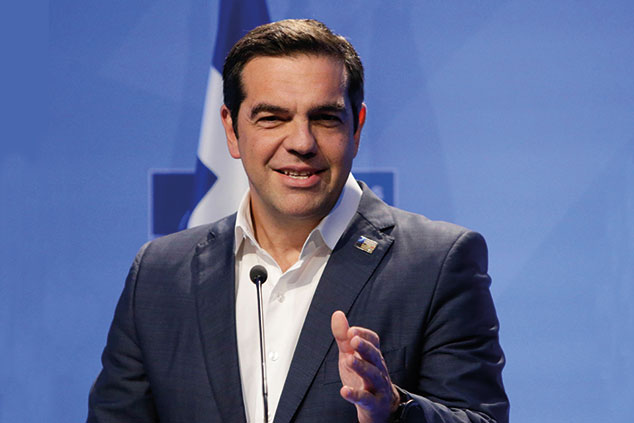
Greece’s prime minister, Alexis Tsipras, isn’t privately given to melodramatic gestures. But he marked the country’s formal exit from its third bailout programme this week by evoking “the epic spirit of Odysseus”, says the Financial Times. Tsipras travelled to Ithaca, home of the Homeric hero, to declare “a new era” for Greece after a nine-year crisis. The man once deemed “the biggest threat to European unity” said Greece is on its way to becoming a pillar of EU stability.
It’s been “a remarkable transformation”, says Denis MacShane in The Independent. In the space of three years, Tsipras has gone from “being the Greek Corbyn to the EU’s poster boy”. Propelled onto the stage as “a demagogue of the populist left” in 2015 – when the prospect of Grexit posed a very real threat to the euro – he has become “a measured, successful prime minister who has kept his country anchored in Europe and helped find a solution to what appeared an intractable European problem”.
Did Tsipras compound the crisis?
But at what cost to Greece? Tsipras and his “can-do” finance minister, Euclid Tsakalotos (another fiery leftist convert), have got the economy growing again.
But the price of the “apparent turnaround” has been steep, says Dealbreaker.com. “A wrenching downturn, combined with nearly a decade of sharp spending cuts
and tax increases”, has left more than a third of the population near poverty, according to the OECD think tank.
Tsipras’s critics charge that he compounded the damage by agreeing to the third and harshest package of budget cuts imposed in 2015. Yanis Varoufakis – the finance minister whom Tsipras parted company with mid-negotiation – accuses him of perpetrating “fiscal waterboarding” on Greece after being gulled by Germany’s chancellor, Angela Merkel. “She promised him a lot and gave him nothing.”
A young revolutionary
Tsipras has long been a man of “contradictions”, says Greek Reporter. “The youngest PM Greece has ever seen” was born in 1974, just days after the fall of a seven-year military junta, and “comes from a well-off family” – his father Pavlos was a contractor of public works and he himself studied civil engineering at university. Yet Tsipras became so entranced with revolutionary politics that he named his second son Orpheus Ernesto after his hero Ernesto “Che” Guevara.
Tsipras went into politics “out of frustration with a society that seemed so immutably rotten”, says The Guardian. He cut his teeth as an ideologue staging high-school sit-ins, and came to national prominence in 2008 when he assumed the leadership of Syriza, “an alliance of Euro-communists, socialists, Maoists, Trotskyists and greens”. As Greece descended into crisis, Tsipras “flourished”, securing support across Greece’s battered classes with a mix of “chutzpah and charisma”. Opponents dubbed him “a dangerous narcissist and economic lightweight” whose ascent was “based on feelgood pledges” he wouldn’t be able to keep.
Depending on your point of view, Tsipras’s rapid conversion to pro-EU market economics was either a cowed submission, or a demonstration of new qualities of realism and pragmatism. But either way, his actions are likely to resonate for years, says Philip Aldrick in The Times. Tsipras might have declared a new chapter of financial independence, but Greece is hardly out of the woods.